Strengthen Urban Water Management and Build Climate-Resilient Cities High-End Seminar on Sustainable Urban Water Management under Climate Adaptation Held in Beijing
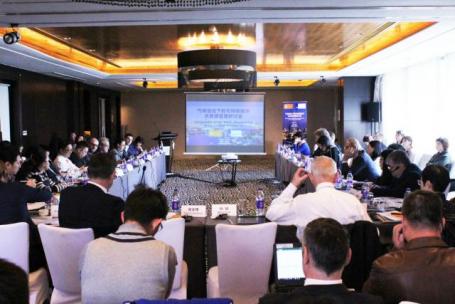
As the World Cities Day draws to the end, topics related to climate change such as urban disaster prevention and rescue and sponge city development have become a focus of all sectors. On November 1, the Ministry of Infrastructure and Water Management of the Netherlands and the World Resources Institute (WRI) co-hosted the High-end Seminar on Sustainable Urban Water Management under Climate Adaptation in Beijing, aiming to exchange practical experience, strategies and policies on sustainable urban water management in response to climate risks. Over 60 government officials, experts and representatives from institutions and companies attended the event.
Water management plays a crucial role in urban climate adaptation. Cities across the world are racing to find innovative solutions to meet future water challenges. SUN Zhen, Deputy Director-General of the Climate Change Department of the Ministry of Ecology and Environment, said, "Cities are most sensitive to future climate risks and are places where substantive actions can take place. We hope that climate change, especially climate change adaptation, will be factored in long-term major infrastructure projects. We are very delighted to forge close cooperation with the Global Commission on Adaptation and will work on future action plans. We expect this seminar to draw wide attention to climate adaptation and advance climate adaptation work in China and the world at large."
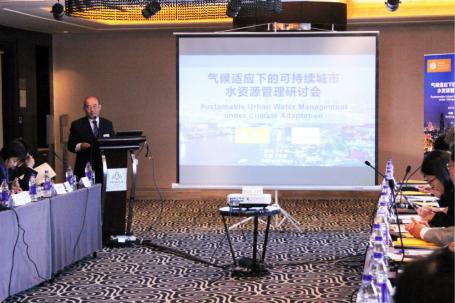
Dr. Andrew Steer, WRI President and CEO, repeatedly stressed the significance of good water management for sustainable social and economic development. He said, "The world has not paid enough attention to climate adaptation. Climate change has affected us in many ways that involve water: too much water, too little water or watershed change....It is all about water. So water is one of the fundamental topics of adaptation. We are very happy to notice the active participation of the Chinese government in this process. The Chinese government, especially the Ministry of Ecology and Environment, attaches great importance to climate adaptation in China. We will leverage international platforms to facilitate international adaptation collaboration among developing countries and share success stories and lessons.
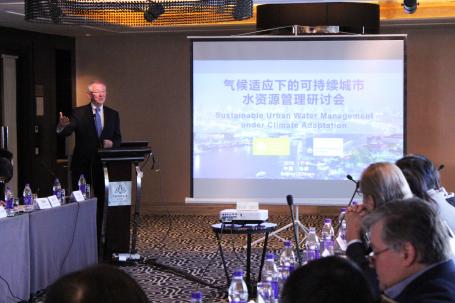
The Global Commission on Adaptation was initiated by the Dutch government. "The Netherlands has a high density of population. It is where three major rivers in Europe run to the sea. One third of our country is below sea level and two thirds of our land is prone to flooding. My country is very vulnerable to climate change and has a big stake in it. We hope that the Commission will pool global wisdom and enable countries to exchange experience and help each other so as to inspire global action on climate change adaptation." said Mr. Ed Kronenburg, Dutch Ambassador to China and Mongolia.
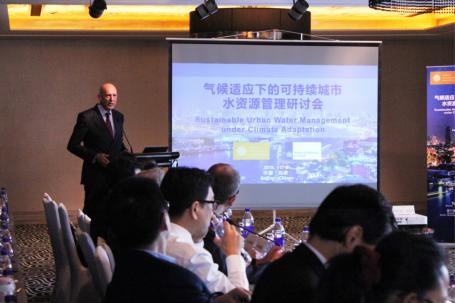
Experts shared their insights on how to build climate-resilient cities from different perspectives. GONG Daoxiao, Executive Director of the Water Department of China Academy of Urban Planning and Design, stressed that the capabilities of comprehensive urban water planning need to be increased. On the one hand, we need to improve urban planning system, and draft special plans on climate adaptation. On the other hand, we must improve the contents of plans, incorporate climate factors into urban planning, and take into account climate change impacts in the review and approval process. Hubert Jenny, Principal Infrastructure Specialist at the Asia Development Bank, highlighted innovative tools and approaches in urban water management. For instance, the latest IT technology under the smart city concept can help city managers collect feedbacks from the public about urban water resources. Simulation innovation based on natural solutions can allow urban water management system to better coordinate with transport and energy sectors. Arcadis Global City Supervisor John Batten introduced many success stories about how to help cities adapt to climate change, including the green roof project in Singapore, green parks in Rotterdam and Eindhoven and the sponge city project in Washington D.C.
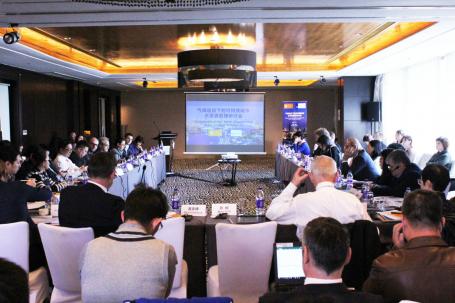
This seminar aims to build a platform to facilitate domestic and foreign exchanges on urban water management system under climate adaptation, increase people's interest in and understanding about this topic, share and explore feasible policies and measures so as to build together modern cities that are safer, more livable and resilient to climate change. As one of the managing bodies of the Global Commission on Adaptation, WRI will continue to study, advocate and work on climate adaptation, build platforms for global climate adaptation exchange, and call on all sectors in China to care about and respond to the global issue of climate change.